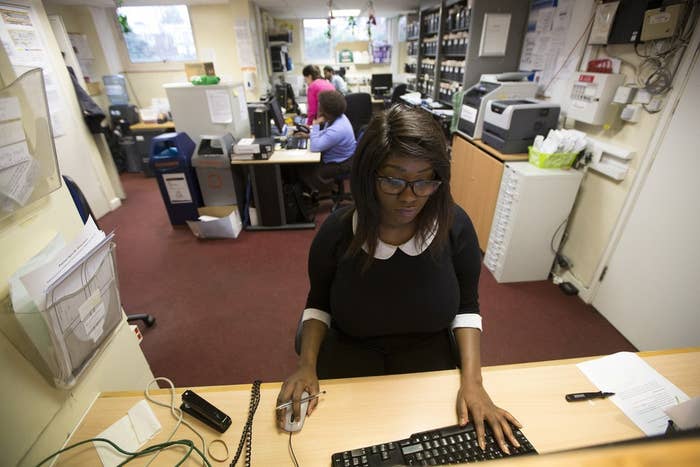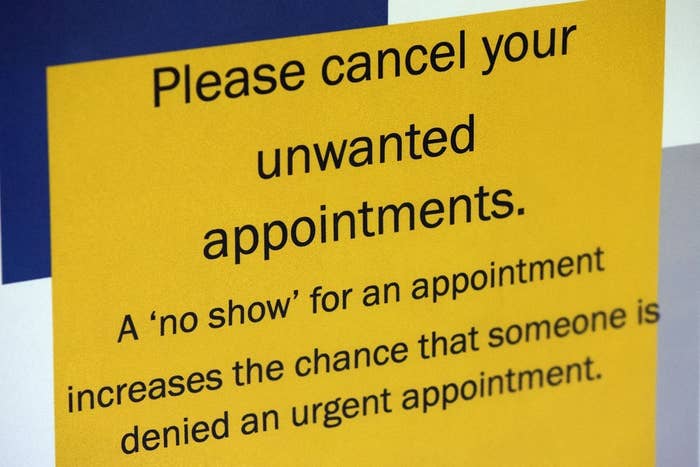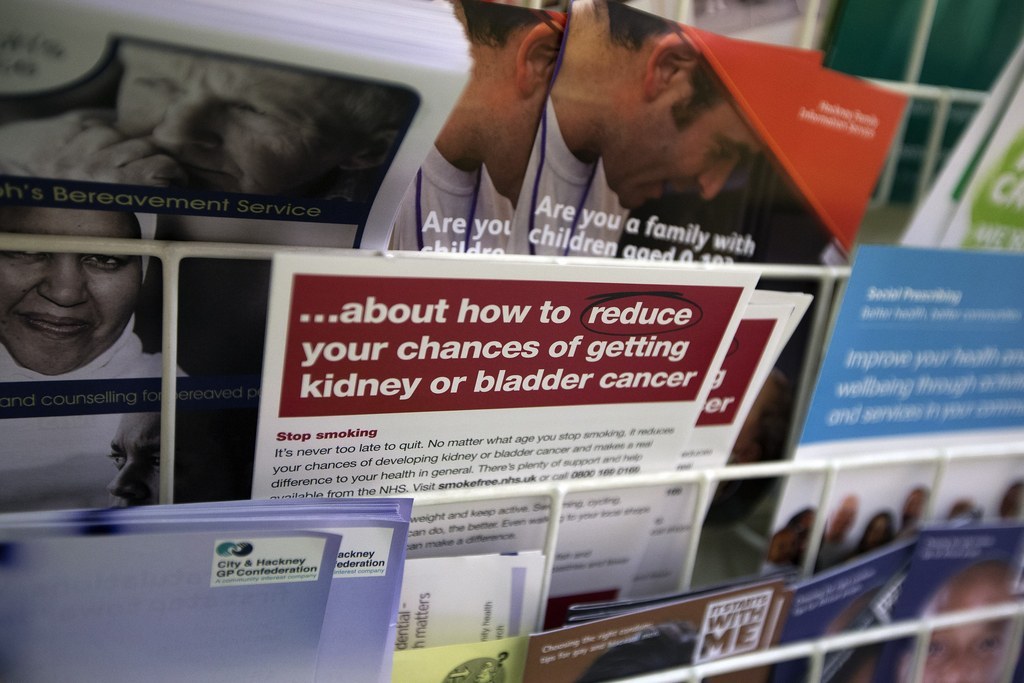Vulnerable people are being turned away from GPs' surgeries because frontline staff wrongly assume patients require paperwork to register, a charity has found.

In a report by Doctors of the World (DOTW), shared with BuzzFeed News and Sky News, the charity found that vulnerable people attempting to sign up with their local GP face multiple barriers, despite being legally entitled to register. In some cases, this has resulted in patients being turned away and potentially becoming even more ill, DOTW found.
Volunteers from the group accompanied patients trying to register with NHS GP practices in England between March and October 2015. In the 849 attempts they witnessed, 39% of people were turned away.
The charity said the biggest barrier for people attempting to access medical care was lack of paperwork, an issue they say hits vulnerable patients – such as homeless people, asylum-seekers, and victims of torture – the hardest. Of those who were refused by GP surgeries, 39% were because of lack of ID, 36% because of lack of proof of address, and 13% because of immigration status.
Legally, access to primary care, walk-in centres, and A&E, as well as diagnosis and treatment of infectious diseases, is free and available to everyone in England. NHS guidelines that were issued in November last year state that patients do not need proof of ID or address to register and see a doctor.
However, DOTW said that although the majority of NHS GPs understand the guidelines, inconsistent and unclear guidance on registering new patients hast led to confusion in some practices that meant people were turned away.
"A total of 511 GP practices were approached with registration requests," the report said. "Sixteen per cent of these were inconsistent in their response: sometimes agreeing to register a patient and sometimes refusing. This evidence suggests that there is confusion amongst GP practice staff about entitlement to primary care."

Leigh Daynes, executive director of Doctors of the World, said the report highlighted a "significant and serious problem," and that NHS guidelines need to be clearer.
"Everyone living in the UK is entitled to free primary care," Daynes said. "GPs are our frontline defence against poor public and personal ill-health. The early detection and treatment of illness by GPs is the most cost-effective and efficient means of managing health."
Phil Murwill, a volunteer doctor at a free clinic in Bethnal Green, east London, said there needed to be greater recognition of this problem. Murwill treats 15 to 25 people a day, including LGBT Ugandans fleeing persecution, and survivors of sexual violence and trafficking. He said many of the patients he sees are homeless, have mental health issues, or are exploited by employers. He most commonly treats domestic workers, often cleaners, whose visas have either expired or haven't been renewed by an employer.
"These people are often the ones cleaning our offices, cooking our food, or cleaning our homes," he told BuzzFeed News. "Many live with their employer, and can't use their employee's address as proof of address for a number of reasons. They have limited labour rights, they're on less than minimum wage, and some of the cleaners have even suffered physical abuse.
"They may come to our clinic and be treated and we see they need ongoing care, such as a chronic condition or an infection. Then the issue is exacerbated when surgery staff ask them to provide documents when sometimes it's just not possible. If we leave them in a vulnerable situation, their own health will deteriorate, meaning there'll be greater pressure on other parts of the NHS at a later date."

DOTW said administrative and clinical workers at GP surgeries need to be trained on entitlement to NHS care, though the charity has seen some success in its work supporting and educating staff.
In 2007, Tavish, a 27-year-old man from Sri Lanka, was seeking medical attention in the UK after he fled the civil war at home. Returning would have meant risking torture, and he lost all his belongings – including his passport – when he escaped.
He said he came to Britain because his life was in danger. His lower back showed scars of being beaten with a large stick. "I wanted to save my life," he said.
When he settled in the UK, he was unable to register with a local GP because he didn't have proof of ID. His physical and mental health deteriorated as a result of the torture he had suffered. However, DOTW volunteers were able to advocate on his behalf and managed to get Tavish registered with his local GP. He is also having regular counselling with the charity Freedom from Torture. Tavish's claim for asylum with the Home Office is ongoing.
The full report is being published by Doctors of the World on Sunday.
